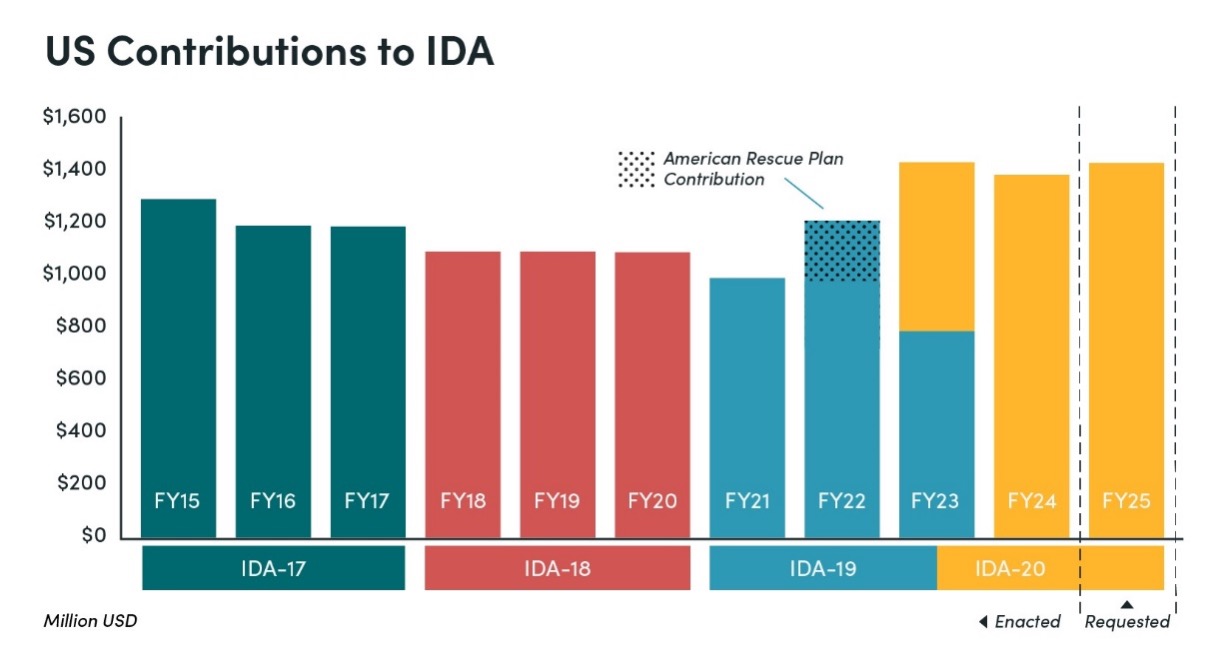The day of reckoning has finally arrived. The Rethinking US Foreign Assistance’s director, Sarah Jane Staats, has officially left the building. All of us are anticipating amazing things from her at the MCC; just as she delivered during her time at CGD.
I now have the humbling opportunity to take the reins of this well-established and influential program. [Along with the unenviable task of meeting the high standards of those who rode before – Sheila Herrling, Connie Veillette, and Sarah Jane.] Thankfully, I am inheriting a wonderful team that Sarah Jane built, including Sarah Rose (formerly of the MCC and USAID) and Will McKitterick.
I arrive at this task just as US development policy is approaching a crossroads. The days of expanding, altruistic US aid budgets are gone. The US political environment demands value, impact, and strategic relevance. Beyond our borders, the development finance landscape has changed even more dramatically. Many developing economies have boomed over the past decade – along with the availability of domestic revenues and private capital. Developing countries are much less interested in aid than they are in US investment, trade, and technology. This means that grants have already become a smaller tool for executing US development policy (and foreign policy too). At the same time, the US will continue to use foreign assistance to confront fragility in places like Haiti and Pakistan. As my colleagues have pointed out, it’s essential that the US government does a much, much better job at this (see here, here, and here).
To reflect the changing times, the Rethink program will change as well. I will be taking a more expansive view – broadening the program’s scope from a singular focus on US foreign assistance to a wider assessment of US development policy tools. In doing this, I will be drawing upon the Center’s immense in-house expertise across a full range of issues.
My colleagues and I will be launching the new Rethinking US Development Policy program (and revamped webpages) soon. While some things will change, we will continue with CGD’s tried and true monitoring of US aid programs. We’ll be closely watching things such as the MCC , Power Africa, the Foreign Assistance Dashboard, and Feed the Future. Rethink’s periodic monitoring products play an important role in the broader policy debate, and I look forward to continuing them in the future.
But beyond this, here’s a sneak peek of the kinds of big questions that we’re kicking around. Please let me know if you have early reactions, suggestions, or ideas.
- What Does the Growth of Developing Countries’ Domestic Resources Mean For US Policy? According to IMF data, African governments’ domestic revenues (excluding grants) are projected to reach $375 billion next year, up from roughly $90 billion a decade ago. All but three African countries have witnessed at least a doubling of domestically mobilized revenues. What does this mean for a US development model that is still largely based on being a service provider of last resort?
- How Can US Policy Better Leverage Private Investment Flows? The Obama Administration’s most recent initiatives – such as the New Alliance for Food Security and Power Africa – aim to unlock the development power of private investment. Yet, the preeminent US investment agency (OPIC) remains under-staffed and constrained by outdated authorities. Beyond OPIC, private sector development tools are scattered across countless US agencies. The new Unleashing OPIC proposal from Todd Moss, Beth Schwanke, and me aims to improve this dynamic. Are there other US policy tools that should be pursued more aggressively as well?
- Has The Time Finally Come For A More Creative Trade Policy and Facilitation Agenda? The Clinton Administration launched AGOA. The Bush Administration completed free trade agreements with 17 countries in Latin America, Africa, Asia, and the Middle East. Since then, US trade policy has been largely stuck in neutral (although Congress did finally approve agreements with Colombia, Panama, and South Korea). Yet, there is an impressive new US Trade Representative and the need to reauthorize preference programs like AGOA soon. Will the US seize this moment with a creative new trade facilitation and trade policy agenda for developing countries (as my colleague Kim Elliott and others have urged)?
- Does US Assistance Align With What Beneficiaries Care Most About? Public attitude surveys in Latin America and Sub-Saharan Africa consistently suggest that people’s most pressing concerns relate to: (i) jobs and income; (ii) economic management; (iii) infrastructure (in Africa); and (iv) crime and security (in Latin America). How much should US policymakers be seeking out and reflecting these widely held local priorities when developing engagement strategies?
Please let me know what you think. My colleagues and I aim to continue using the Rethink program’s great platform for exchanging ideas and views. I feel honored and humbled for the opportunity to lead the new Rethink into the future.
Disclaimer
CGD blog posts reflect the views of the authors, drawing on prior research and experience in their areas of expertise. CGD is a nonpartisan, independent organization and does not take institutional positions.





